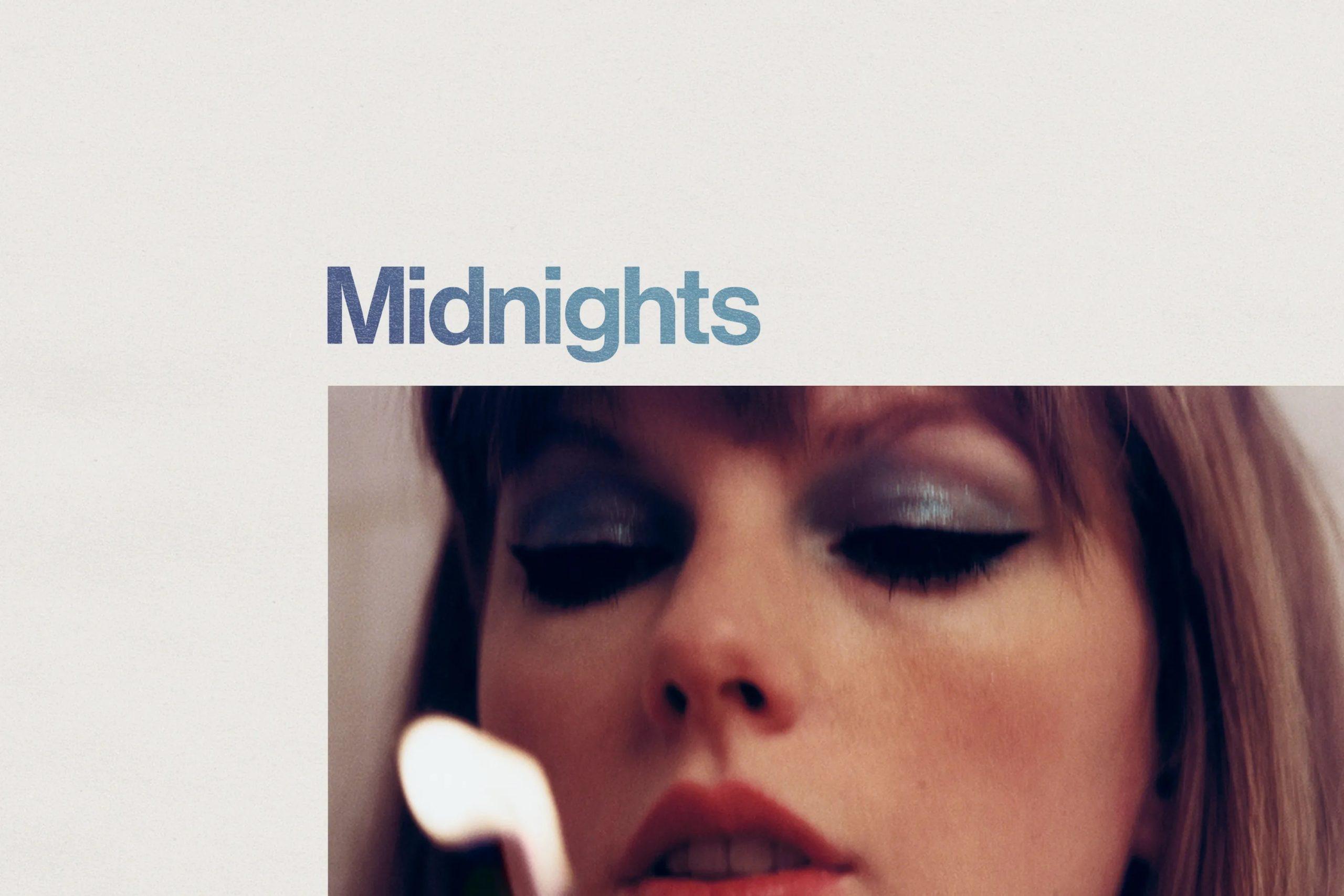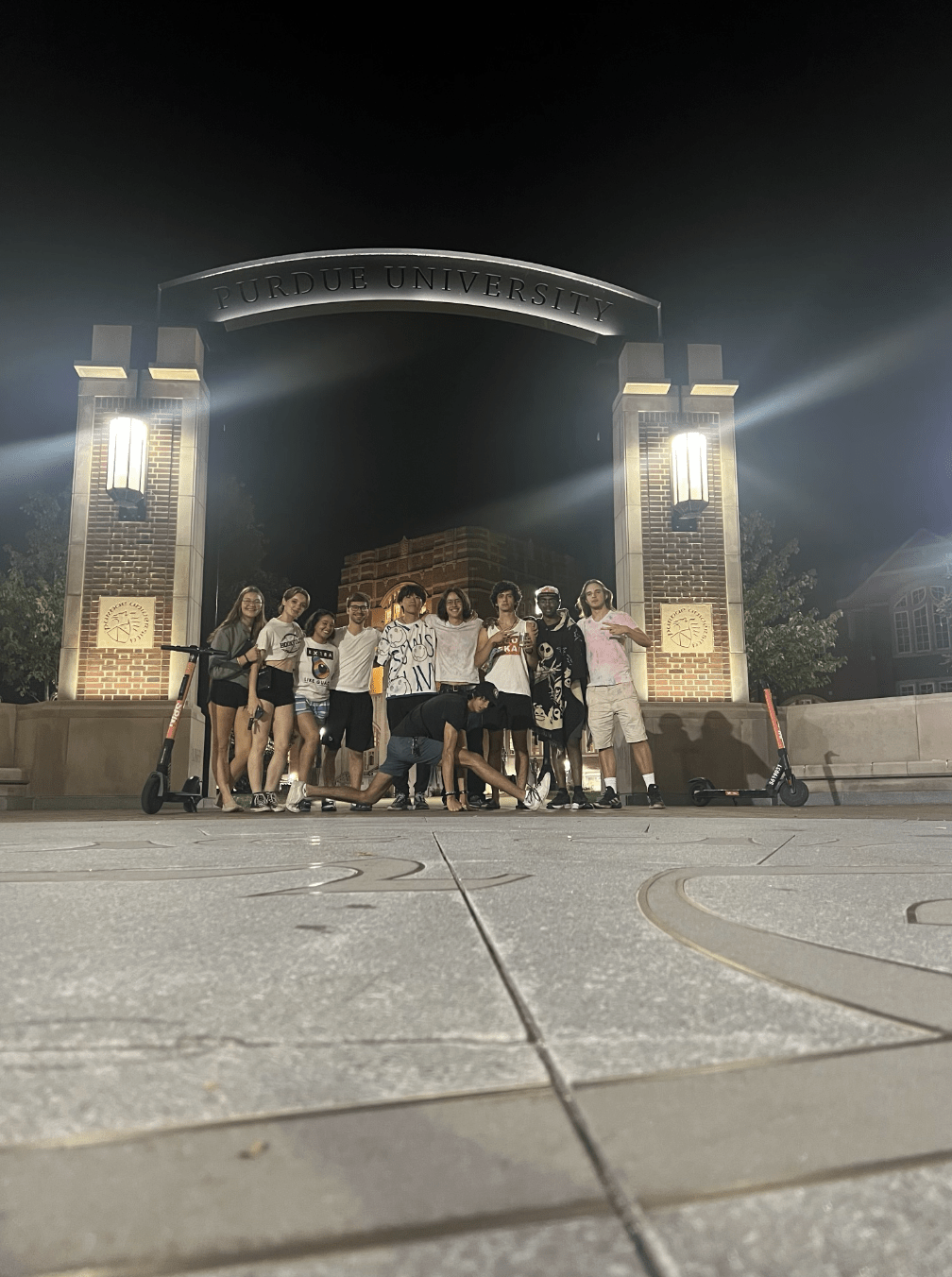“Midnights” alternates between stellar lyricism and superficial depth
“Midnights,” Taylor Swift’s newest studio album, has been lauded as both a critical and commercial success, shattering records since its release at midnight on Oct. 21. The original record contained 13 songs, and Swift dropped in seven more for the “3 a.m. version” to bring the total to 21. Here is a review of seven popular tracks.
Anti-Hero
“Anti-Hero” feels surprisingly vulnerable for how upbeat it sounds.
Swift wastes no time in telling us what she thinks of herself at midnight — that her narcissism, her selfishness and her scheming are enough to drive anyone she loves away.
It’s convincingly told and painfully honest. She is 32 — “a monster on the hill” — in an industry of teenage pop stars. Her faults are all-encompassing. She will “stare directly at the sun but never in the mirror.” Of course, “Anti-Hero” proclaims, Swift is the problem—just the recitation of her fears is exhausting.
The music video, released on Oct. 22, echoes this mood. Nothing is as it should be: her breakfast eggs bleed a glittery purple yolk; she crashes a tea party as an Alice-in-Wonderland-esque giant; and she’s chased by her own ghosts, all dressed in bedsheets and sunglasses.
The video’s most striking moment, though, is Swift’s own funeral. Her daughter-in-law, as the song speculates, has killed her for the money. The video expands off this line into a two-minute scene where her children complain about not being left in the will, blame each other for abusing Swift’s legacy and start a fight so large it derails the ceremony.
I can understand what Swift was attempting to say here, at least, but it felt largely unnecessary. The loud, unpleasant shouting about shallow family relationships killed any subtlety in a lyric I was already ambivalent toward. Does she really dream of a nonexistent daughter-in-law, married to a child she doesn’t even have?
Nevertheless, I find myself forgiving “Anti-Hero.” In its rendering of intrusive thoughts, it is beautifully successful.
Rating: 4 stars.
Midnight Rain
“Midnight Rain,” an otherwise excellent track, is marred only by its beginning.
The distorted voice that haunts the track is both jarring and unnecessary. I can’t think of a reason for it to be there, but every time I hear it, it is like nails on a chalkboard.
It is overused, too. In the song’s short runtime — less than three minutes — we hear it at least four times. The second I’m absorbed into Swift’s vision, I’m pulled out of it by the album’s production.
It’s a shame because the rest of the track is strong. Swift sings of a fleeting memory and a relationship that could have been something more, in a narrative that’s both concise and compelling.
He was “a montage,” Swift tells us, who dreamed of picket fences and white veils instead of the life Swift wanted to build for herself.
The song has the airs of a late-night could-have-been. Whatever this relationship was, Swift’s clearly over it; her voice has the slow softness of reminiscence.
Nevertheless, we listen as she tells herself he was “sunshine” and she was his polar opposite. It truly feels like a midnight rainstorm, one where Swift and the listener are safely indoors. It is a memory I can’t help but return to.
Rating: 4 stars.
Question?…
This is a classic Swiftian song, and she knows exactly what beats to hit. Not only is this a perfect application of her formula, but parts of the song also interpolate “Out of the Woods,” a fan favorite (and personal favorite) from her 2016 album “1989.”
In an album that’s stuttered in its return to pop, this is a perfect counter-example. It’s upbeat enough to be catchy, and yet still a brilliant example of Swift’s layered lyricism.
As usual, Swift paints a vivid image of the situations she recalls, drawing out the hyper-specific details. The scene she returns to, of kissing in a crowded room full of friends, is made into a universal experience.
Her lyrics ask the question before she ever gets there—what did those 15 seconds mean? Is anything the same after what existed between us? It’s impossible not to ask it yourself. Was everything “second-best after the meteor strike”?
Of course, “Question…?” cannot answer its own premise. To me, that’s the beauty of it. Does he wish he’d fought harder? Does he regret the way things ended? Swift doesn’t know. To hear her tell it, she doesn’t even care.
“It’s just a question,” she sings. It is. We’ll be left to wonder about the present. It isn’t. The plaintive melody, paired with the quiet insistence of Swift’s voice, conveys the real weight of what she needs to know. The listener has no choice but to ask Swift’s questions along with her.
Rating: 5 stars
Vigilante Sh*t
While “Vigilante Sh*t” promises intrigue, drama and revenge, we are left with an empty shell of a track. I have never heard a song with less heart.
In this song’s painful three-minute run, Swift:
– Wears dramatic eyeliner.
– “Dresses for revenge,” presumably in addition to the eyeliner.
– Relies heavily on the clichéd “don’t get sad, get even.”
– Reports a man to the FBI for unspecified “white-collar crimes.” I don’t know about you, but working with federal authorities seems like the opposite of vigilante behavior to me.
“Vigilante Sh*t” is a hodgepodge, clumsy list. There is no substantial rationale for this alleged vigilantism and no emotion in Swift’s lyricism. You would think a song about someone “doing lines while he was crossing all of (hers)” would have some anger behind it. At the very least, you could expect some schadenfreude.
Instead, even the production drags. It’s an uninspired attempt at capturing the dark electro-pop of Billie Eilish’s “bad guy” — a weak, repetitive copy with no substance behind it.
It is a song with absolutely nothing to say.
Rating: 1 star
Karma
Swift tackles revenge anew in “Karma,” in a track I am not sure how to feel about.
Swift, the song proclaims, has only lived a good life, so she is now reaping the reward. The breeze in her hair, her cat, her boyfriend—that’s Taylor Swift’s karma. For those who have wronged her, though, they’re left “envious that for (them) it’s not” so simple.
I came away unimpressed. The idea of karma has been discussed in Western pop culture ad nauseam, and often with more nuance and insight than what this song provides.
Swift herself has done this before—she spent an entire album, “Reputation,” on the same beat, about the same people.
It’s not all bad, though. For all its faults, it is carried by a catchy, upbeat tune. Its declaration that “karma is a cat” or “sweet like justice, karma is a queen” is made sincere by Swift’s voice, quietly delighted with her deserved good fortune. If it wasn’t for my utter exhaustion with the lyrics, I would genuinely enjoy this song every time it played.
Unfortunately, though, nothing can save “Karma” from itself. It’s a thoroughly self-satisfied track, and its shallowness dilutes the joy of well-earned karma.
Rating: 3 stars.
High Infidelity
It’s rare for post-mortems to be this gorgeous.
Do you know where Swift was on April 29? It doesn’t matter, because you don’t want to. It was “High Infidelity” after all, where Swift dealt the killing blow to a relationship already disintegrating.
Both Swift’s vocals and lyrics manage to walk a thin line between spirited and mournful. There is delicate poetry in her attempts to dodge the “picket fences sharp as knives” trapping her in a loveless relationship.
In many ways, “ideal” relationships like these are a focal point of “Midnights.” Swift refuses to settle — in “Lavender Haze” she decries dated ’50s mindsets that expect her to settle down, get married and have children. From the disappointment of “Midnight Rain” to the joy of “Bejeweled,” Swift proclaims again and again that her dreams are far from suburban bliss.
“High Infidelity” takes somewhat of a different approach. Instead of any delight in defying expectations, the song focuses on the pain that defiance can cause. It dances around what cannot be said and what did not exist, creating an image so vivid I can picture it instantly. The “rain soaking, blind hoping” blur Swift cannot name, kept track of by the partner she left behind, is all-consuming.
Despite this variance from the main songs of the album, I can’t help but wish the track had been included. “High Infidelity” feels achingly like midnight.
Rating: 4 stars.
Would’ve, Could’ve, Should’ve
On my first listen, I was ambivalent about “Midnights” — large swaths of it felt too glossy for its concept of sleepless nights and too superficial for any real depth.
Then, the 3 a.m. tracks dropped, including “Would’ve, Could’ve, Should’ve.”
Once again, Swift has constructed a masterpiece of furious grief. Reminiscent of her hits “All Too Well” and “Dear John,” the song expertly explores a traumatic relationship that Swift wishes to forget.
Swift’s lyrics are achingly sincere and poignantly vicious. She “danced with the devil at 19” and asks if it mattered against the reputation of “a promising grown man.”
Her use of religious imagery is especially striking here, lending the song the desperation of a confession. Swift is trapped in the “stained glass window” of her mind, and in the “crisis of (her) faith” he has caused her.
The raw emotion in Swift’s voice is palpable. She knows she can never retrieve what was taken from her—her girlhood, her faith, her innocence—but she begs for it anyway. Even her delicate lyricism cannot shield the listener from the sheer scale of her horrified regret.
Rating: 5 stars.
— By Samhita Kumar
A shorter version of this story was originally published in the Nov. 16 edition of The Octagon.





